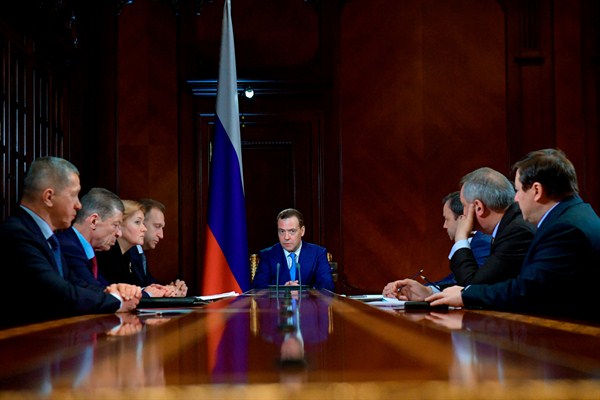At first glance, the U.S. Treasury Department’s April 6 sanctions against 38 Russian individuals and business entities, including oligarchs and senior government officials, would be easy enough to dismiss as the latest reprisal in an escalating geopolitical spat between the United States and Russia. Just a week before, the two countries traded diplomatic expulsions over the poisoning of a former Russian spy in the United Kingdom. Sixty diplomats from each nation were declared persona non grata. The U.S. consulate in St. Petersburg and the Russian consulate in Seattle were both shuttered. The tit-for-tat expulsions followed a February indictment by the U.S. Justice Department of 13 Russian nationals for allegedly interfering in the 2016 American presidential election.
Yet the sanctions on April 6, issued under the Countering America’s Adversaries Through Sanctions Act, differ from previous restrictive U.S. measures in both aim and execution. They represent a change in how Washington applies financial sanctions to further its foreign policy, one that could be felt by America’s political rivals and strategic competitors beyond the Kremlin.
The sanctions sought to punish Russian businessmen and companies benefiting from the Russian state’s activities abroad, including occupying Crimea, arming the Syrian regime and interfering in Western elections. Four of the seven Russian oligarchs designated that day—Vladimir Bogdanov, Oleg Deripaska, Suleiman Kerimov and Viktor Vekselberg—form part of the political circles closest to President Vladimir Putin, according to an October 2017 analysis from the Moscow-based Minchenko Consulting. In effect, these sanctions took far greater aim at the informal power base of a U.S. adversary than any sanctions before them. While Washington sporadically tested this tactic in the past, most notably with 2008 sanctions against Syrian tycoon Rami Makhlouf, who the Treasury Department at the time said “improperly benefits from and aids the public corruption of Syrian regime officials,” it had never employed it on such a broad scale.

